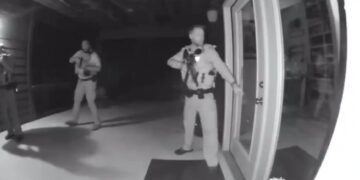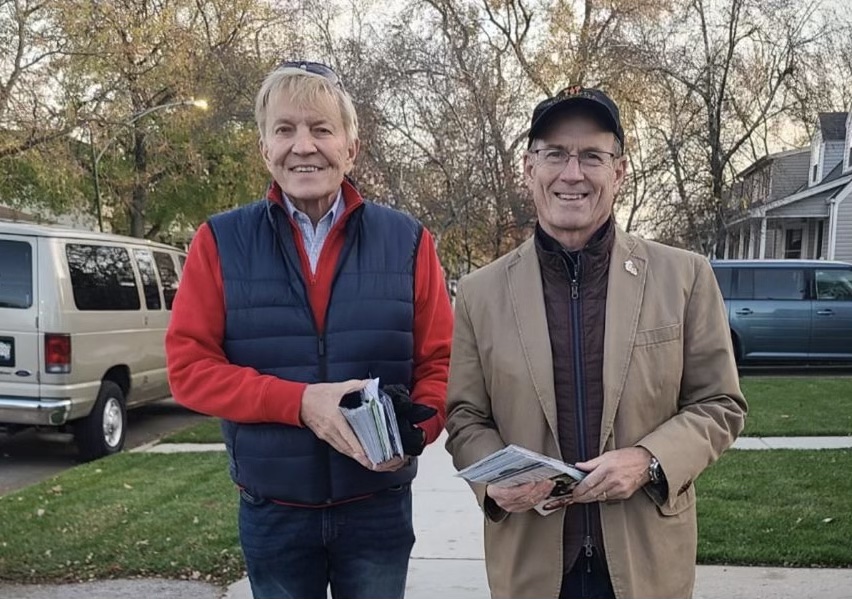By John F. Di Leo, Opinion Contributor
Hopefully, we think of our nation’s servicemen every day – with respect, with pride, with gratitude.
We especially think of them on the anniversaries important to the biggest wars in which they served – on days like Independence Day, Flag Day, Constitution Day, and of course, Veterans’ Day.
But Memorial Day is the most direct one: a specific commemoration of those servicemen “who gave the full measure of devotion” for their country – that is, those who died in service to these United States.
Memorial Day is therefore about many people – hundreds of thousands of men and women since our nation’s birth almost a quarter of a millenium ago. Many of us have family members to remember in that list; so many of us lost a brother or sister, a father or uncle, a grandfather or cousin.
Too many of us know our nation’s military history not only from the history books, but from family memories of dear patriots who were taken too soon, by an enemy bullet, torpedo, grenade or IED.
But many of us have no such family connections to crystallize these memories, and with fewer and fewer of us going into the service, Memorial Day is becoming a day to remember strangers, more than our own heroic family members.
All patriots who serve, and make such sacrifices, deserve to be remembered. Patriots such as these:
Dr. Hugh Mercer
Hugh Mercer was born in Pitsligo, Scotland in 1726. A physician by trade, he served in the military in support of Bonnie Prince Charlie in 1746, and when that cause failed, he crossed the Atlantic to practice medicine in Pennsylvania. After eight years in practice as a doctor, he was again called to war, serving in the French and Indian War, where he met a young Virginia officer named George Washington.
Having served admirably in that war, as a member of the British command in Pennsylvania for some years, Mercer relocated to Fredericksburg, Virginia afterward to again practice medicine, and eventually bought Ferry Farm from Washington, in hopes of raising his family there and living contentedly in peace for the rest of his days.
But that was not to be – for the British started harassing the colonies after the Seven Years War – restricting trade, raising taxes, and curtailing civil liberties – until, finally, in the mid 1770s, a civil war between these colonies and the United Kingdom could be seen on the horizon. Mercer joined a local Committee of Safety, then joined the militia, and stood ready to fight if fighting commenced. And so it did.
Commissioned a Brigadier General when the Continental Army was created in 1776, Mercer served admirably in the New York and New Jersey theaters, under the impossible odds of the New York City Campaign, leading numerous actions such as the raid on Richmondtown and the famous Crossing of the Delaware that led to the First Battle of Trenton.
Unfortunately, there was to be a Second Battle of Trenton, mere days later, and here his luck gave out. His horse was shot from under him, and the redcoats, mistaking Mercer for Washington, trained their fury upon him personally. Beaten and bayoneted countless times, the valiant surgeon was mortally injured, but he hung on for nine more days… living long enough to see his troops win the Battle of Princeton under General Washington, repelling Cornwallis and gaining the upper hand for the first time since the British landing at New York, months before.
General Mercer had crossed an ocean to make America his home, and he died in its service. His famous descendants include General George S. Patton and Hollywood songwriter Johnny Mercer. His courage is remembered by monuments in Pennsylvania and New Jersey; his family has carried on his name throughout the generations.
His sacrifices led to this country becoming the nation we know.
Dr. Joseph Warren
Joseph Warren was born to a farming family in Roxbury, Massachusetts in 1741. Educated at Harvard, he too entered the practice of medicine and surgery in that difficult time (imagine being a doctor before antibiotics, a surgeon before anesthesia; a hard profession indeed).
Warren was a prominent member of the community by the time our difficulties with Great Britain began. He was in Massachusetts, the colony most heavily abused by King and Parliament. Boston was under martial law in 1768; long before any other colony felt a need to think of independence, Bostonians felt like they were living under a dictatorship. Dr. Warren joined the respected informal society of pamphleteers and op/ed writers, anonymously writing essays under the nom de plume, “A True Patriot.”
Dr. Warren joined Sam Adams and John Hancock in leading the Sons of Liberty; he served on the committee of local worthies who investigated the Boston Massacre in 1770. Borrowing a familiar British melody, Warren even wrote a patriotic song – “Free America” – in 1774.
He delivered speeches, joined a Committee of Correspondence, drafted the Suffolk Resolves, and when the time came for Massachusetts to establish its own state government in place of the British colonial government, Dr. Warren was elected President of the new state legislature, the Massachusetts Provincial Congress.
When hostilities finally broke out, Dr. Warren was ready. He was involved in the midnight rides of Revere, Dawes, and Prescott. He led the Massachusetts militia in harassing the redcoats returning from the Battle of Lexington and Concord, and prepared soldiers for the long, long wait that came to be known as the Siege of Boston.
When the Continental Congress formally established a Continental Army, appointing George Washington to command it, they sent up a commission to Boston naming Joseph Warren as a major general, but he never got the chance to serve as such.
As the militia were preparing for the battle now known as Bunker Hill, Warren joined the fray as just another infantryman, bravely serving in this bloody but consequential battle in June, 1775. Out of ammunition after two serious British assaults, Warren was among those killed in the third redcoat attack.
But his struggle was not in vain; Dr. Warren’s years of spreading the message of independence, his work in building an independent spirit among his fellow New Englanders, was to contribute to the fierce defense of their precious land through eight long years of war. He left four children behind when he died at 34, but he helped to give us the country we cherish today.
Activist, governor, soldier, writer. A Founding Father of an independent country that he didn’t live to see. His sacrifices, too, led to this country becoming the nation we love.
Casimir Pulaski
Born in Warsaw, Poland in 1745, the man we know as Casimir Pulaski was raised a noble in a time of political difficulties in northeastern Europe. In his 20s, he and his father allied with Poland’s Bar Confederation. Despite considerable talent, both military and political, their side was outnumbered and out-financed by foreign interests, and Poland soon fell to their Russian-allied opponents, putting young Casimir Pulaski on the run.
Landing in France in 1775, with few prospects as a foreign military man in exile, he was to eventually meet American diplomat Benjamin Franklin, who recommended him to allies in the Continental Congress. By July of 1777, Pulaski had landed at Massachusetts, finally presenting himself to General Washington in August.
Pulaski was to show his talents quickly, as his equestrian skills were needed at the Battle of Brandywine on September 11, 1777. His leadership – before Congress had even had a chance to grant him a commission – was responsible for saving not only the Continental Army’s nascent cavalry unit, but likely the life of General Washington himself.
Word went out far and wide about this Polish wunderkind on horseback, and Washington soon put him in charge of organizing and training a cavalry. Commissioned a brigadier general, Pulaski wrote up its first training programs and set to work reforming the unit from a glorified messenger service to a true military operation.
Pulaski served in America’s military for just over two years. In that time, he trained his unit (soon called the Pulaski Cavalry Legion), he sometimes outfitted his troops with his own money, and he fought in multiple battles against the British. Training in the European approach, he brought needed professionalism to a cavalry that had lacked it, much in the same way that Baron von Steuben brought European military training to the infantry.
Pulaski’s luck ran out in October, 1779. His cavalry was providing crucial service to the American cause in the runup to the Siege of Savannah, and in one of many rides forth, while gathering fleeing French riders back to the main unit, Brigadier General Pulaski was knocked off his horse, lethally injured by a burst of grapeshot. He hung on for two more days, then succumbed to his wounds.
Like so many other patriotic Americans then and since, Casimir Pulaski was an immigrant, one who was drawn by our political philosophy – our commitment to build a free nation, practically from scratch.
Pulaski never married; he left no heirs to carry on his family name. But as the father of the American Cavalry, and as one of the heroes of our Polish-American community ever since, he will never be forgotten. There are statues of Casimir Pulaski, often on horseback, across the country and in Poland too. Streets and parks bear his name; highways and bridges honor him as well.
And while we no longer fight wars on horseback, as a rule, the tank is in many ways the cavalry’s modern heir, so in the army too, this courageous equestrian’s legacy lives on. His sacrifices led to this nation becoming the nation that we love.
Memorial Day
This holiday began a century after their time, with a different name: it was first called Decoration Day, an opportunity to honor the many soldiers lost in the Civil War. The practice of visiting cemeteries on a single day, a nation remembering its lost patriots almost in unison, was expanded after World War I to include all of our nation’s many wars… and the holiday’s name was changed to Memorial Day.
And so today, we gather at public parks for somber ceremonies; we visit our families’ cemeteries, we stage parades.
And we remember those we have lost, both the famous ones like those recounted above, and the less famous, those known only to their families and friends, but whose service was no less important, and whose sacrifice for the Glorious Cause of American Independence was just as meaningful.
May we remember them always with gratitude and honor.
May Divine Providence bless this nation that they won for us, and may He bless our commitment to again serving the world as that City on a Hill, that beacon of human liberty, that ultimate pinnacle of Western Civilization that our nation was born to become.
Copyright 2023 John F. Di Leo
John F. Di Leo is a Chicagoland-based trade compliance trainer and transportation manager, writer, and actor. A one-time county chairman of the Milwaukee County Republican Party, he has been writing regularly for Illinois Review since 2009. Follow John F. Di Leo on Facebook, Twitter, Gettr or TruthSocial.
A collection of John’s Illinois Review articles about vote fraud, The Tales of Little Pavel, and his 2021 political satires about current events, Evening Soup with Basement Joe, Volumes One and Two, are available, in either paperback or eBook, only on Amazon.
Don’t miss an article! Use the free link above to sign up for Illinois Review’s free email notification service, so you always know when Illinois Review publishes new content!
By John F. Di Leo, Opinion ContributorIf you think bringing American manufacturing jobs back is a steep climb, it’s nothing compared to one of the key efforts this...
Read moreDetails








